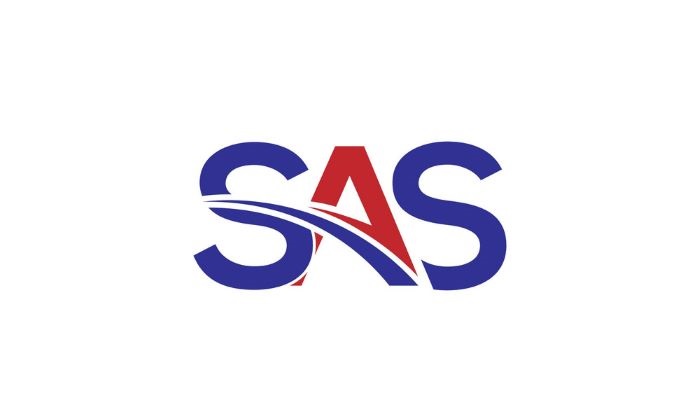Technology
New Global Study: 1 in 2 Executives Experiencing “Resiliency Gap”

Despite three straight years of ongoing disruption and economic ambiguity, when it comes to resiliency, 53% of executives admit their company is not where it should be. This is among the top findings in a global business survey report by analytics leader SAS. Resiliency Rules explores the current state of business resiliency and what steps companies in industries like financial services, retail, manufacturing, health care, and government are taking to navigate change and seize opportunity.
In complement to the report, SAS has developed a new Resilience Assessment Tool. The free, online assessment tool enables business leaders to appraise their own company’s resiliency quotient based on the five core “resiliency rules” explored in the study.
Between rhetoric and reality
SAS surveyed 2,414 senior executives at companies around the globe with more than 100 employees. Among the respondents, 70% are optimistic about the future of their country’s economy, and 80% are currently investing in resiliency planning and strategy. However, the research indicates a resiliency gap between the importance executives place on resiliency, and how resilient their organizations actually are.
According to the survey data:
- Nearly all (97%) executives believe resiliency is very or somewhat important, yet less than half (47%) perceive their company as resilient.
- Roughly half (46%) admit they are not fully equipped to face disruption and struggle in addressing challenges such as data security (48%), productivity (47%) and driving technology innovation (46%).
While the resiliency gap is today’s reality, 81% of respondents indicate they believe resiliency is attainable with the right guidance and tools. And more than 90% of the respondents see data and analytics as critical tools for a resiliency strategy.
“We want to help executives across industries outpace their competitors by using data and analytics to build a sustainable resiliency strategy,” said Jay Upchurch, Executive Vice President and CIO at SAS. “By taking the Resiliency Index, the research and assessment tool we launched today, organizations will be able to better identify areas of existing strength and areas where growth is possible. That insight will help them close gaps and strategically fortify the tools and systems that make them agile in the face of challenges and disruption.”
The five Resiliency Rules and the necessity of data and analytics
SAS identified five principles instrumental to maintaining and strengthening business resiliency:
- Speed and agility.
- Innovation.
- Equity and responsibility.
- Data culture and literacy.
- Curiosity.
Referred to as the five Resiliency Rules, SAS’ research examined how executives prioritize and implement each. One thing was clear: high-resiliency executives place higher value and invest more than low-resiliency executives in each area. This was consistent in the responses across country and industry segmentations, indicating executives view these as fundamental components for a resiliency strategy.
A key takeaway from the executive research is the critical role of data and analytics in implementing the Resiliency Rules. Nearly all high-resiliency executives (96%) use internal and external data and analytics to inform decision-making, which is key for navigating changes and ensuring business continuity. The highly resilient business executives claimed to implement data tools more than their less resilient counterparts (93% vs. 22% low resiliency).
Behind the Research: SAS introduces the Resiliency Index
For the study, SAS created an assessment methodology called the Resiliency Index to understand where resiliency fits into priorities and investments for executives. SAS categorized respondents into three categories:
- High resiliency: 26%
- Moderate resiliency: 54%
- Low resiliency: 20%
Comparing the business practices of each, high-resiliency executives view having a structured strategy integral because it addresses more than managing disruption but plays a part in business stability. A resiliency strategy impacts key business metrics including job performance and consumer confidence.
Learn from high-resiliency executives
Helping companies close the resiliency gap starts with getting the right data and analytics in the hands of executives. SAS has launched its Resiliency Assessment Tool as a free tool based on the Resiliency Index for anyone to conduct their own business assessment and action planning. This tool, along with insights from the high-resiliency executives in the report, delivers practical guidance for fostering greater business resiliency.
“The SAS AI/ML platform continues to play a critical enabling role as we transform our manufacturing and commercial practices,” said Steve Bakalar, Vice President of IT Digital Transformation at Georgia-Pacific. “SAS’s Resiliency Assessment Tool research resonates loudly against the methods and strategies we are driving. All five principles are essential components to imbed resourcefulness and resiliency into organizations that seek to flourish in these very challenging and rapidly changing business conditions.”
To view the full Resiliency Rules report and use the Resiliency Assessment Tool, visit www.blogs.sas.com/content/resiliency/.
About the research methodology
- SAS conducted in-depth interviews with business leaders in Brazil, France, Germany, India, Japan, United Kingdom, and United States in November to understand senior executives’ perspectives on business resiliency and their approaches to leadership during volatile times.
- A proprietary online survey was conducted with 2,414 senior executives working full-time within financial services, retail/consumer goods, manufacturing, healthcare/life sciences, or government from Dec. 16, 2022, to Jan. 4, 2023, in the aforementioned countries.
About SAS
SAS is the leader in analytics. Through innovative software and services, SAS empowers and inspires customers around the world to transform data into intelligence. SAS gives you THE POWER TO KNOW®
Source – SAS
-
Auto2 years ago
Honda Marine Debuts All-New BF350 Outboard Company’s First V8 Motor Available Commercially, Flagship Model Offers Premium Power and Unparalleled Performance for Extraordinary Boating Experiences
-
Auto2 years ago
New Features Further Increase Desirability Of Bentayga Range
-
Technology2 years ago
Oracle Partners with TELMEX-Triara to Become the Only Hyperscaler with Two Cloud Regions in Mexico
-
Auto2 years ago
Honda and Acura Electric Vehicles Will Have Access to Largest EV Charging Networks in North America Aided by New Agreements with EVgo and Electrify America
-
Lifestyle2 years ago
2023 Nike World Basketball Festival Brings the Best of Basketball Style, Culture and Community